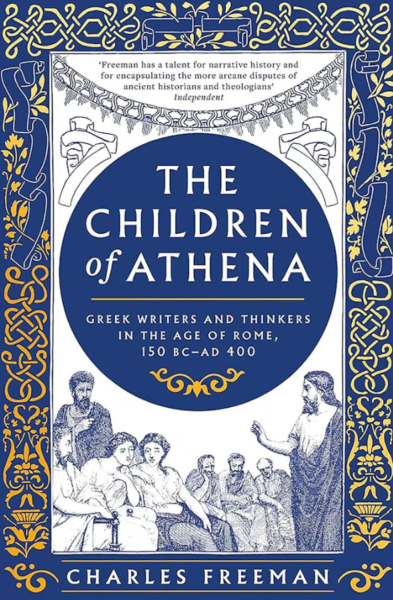World War Two
Published 23 Mar 2024Chiang Kai-Shek is demanding his Chinese troops back from Burma, but this doesn’t fit well with Mountbatten’s plans for the region. In Burma, Bill Slim’s forces liberate Mandalay this week and make plans to head south for Rangoon. There’s also friction elsewhere in Allied command — between the Soviets and the Western Allies — over Italy. In the field in Europe, the Soviets advance all along the eastern front, and in the west, the Allies secure another Rhine crossing, and they also launch a double operation to send even more men across the river in force.
0:00 Intro
0:53 Recap
1:20 Iwo Jima
2:15 Plans for Okinawa
3:53 Mandalay liberated and plans for Burma
08:19 Allied Machinations about Italy
10:25 Soviet advances all along the Eastern Front
16:55 Plans for Operation Grapeshot
17:45 Four Allied Operations in the west
23:25 Summary + Conclusion
(more…)
March 24, 2024
Chiang versus Mountbatten – WW2 – Week 291 – March 23, 1945
“[A] term was coined in Britain for playing music on your phone in public: ‘sodcasting’ – after ‘sod’ for ‘sodomite’, i.e. something that only a total ASSHOLE would do”
We’ve all been there at some point, especially in waiting rooms or on public transit: someone is either accidentally or deliberately subjecting everyone else in the vicinity to their personal soundtrack:
The modern world is noisy, I get that. I’m fine dealing with busy, urban places. But that surely makes those other places where you can escape the noise all the more vital in the constant struggle for sanity in this century. This is perhaps the one issue on which uber-leftist Elie Mystal and I agree. He found himself this week in a waiting room, full of peeps “listening to content on their devices with no headphones … LOUDLY. What the SHIT is this?? Is this normal?” His peroration: “I’M DEAD. I CAN FOR REAL FEEL THE VEINS IN MY HEAD THROBBING. THIS IS HOW I DIED.” #MeToo, my old lefty comrade.
The degradation of public space in America isn’t entirely new, of course. As soon as transistor radios became portable, people would carry them around — for music or sports scores on construction sites or wherever. But the smartphone era — thanks once again, Steve Jobs, you were so awesome! — gave us an exponential jump in the number of people with highly portable sound-broadcasting machines in every public space imaginable. In other words: Hell on toast.
At the beginning of this phone surge, a term was even coined in Britain for playing music on your phone in public: “sodcasting” — after “sod” for “sodomite”, i.e. something that only a total ASSHOLE would do. Sodcasting was just an amuse bouche, though, compared with our current Bluetooth era, where amplifiers the size of golf-balls have dialed it all up to 11, and the age of full-spectrum public cacophony — including that thump-thump-thump of the bass that carries much farther than the sodcasting treble — has truly begun.
National parks? They are now often intermittent raves, where younger peeps play loud, amplified dance music as they walk their trails. On trains? There is now a single “quiet car” when once they all were, because we were a civilized culture. Walk down a street and you’ll catch a cyclist with a speaker attached to the handlebars, broadcasting at incredible volume for 50 feet ahead and behind him, obliterating every stranger’s conversation in his path.
On a bus? Expect the person sitting right behind you with her mouth four inches from your ears to have a very loud phone conversation, with the speaker turned up, and the phone held in front of her like a waiter holding a platter. The things she’ll tell you! Go to a beach and have your neighbors play volleyball — but with a loud speaker playing Kylie Minogue remixes to generate “atmosphere”.
When did we decide we didn’t give a fuck about anyone else in public anymore?
It’s not as if there isn’t an obvious win-win solution for both those who want to listen to music and those who don’t. Let me explain something that seems completely unimaginable to the Bluetoothers: If you can afford an iPhone, you can afford AirPods, or a headset, or the like. Put them in your ears, and you will hear music of far, far higher quality than from a distant Bluetooth, and no one else will be forced to hear anything at all! What’s not to like? It follows, it seems to me, that those who continue to refuse to do so, who insist that they are still going to make you listen as well, just because fuck-you they can, are waging a meretricious assault on their fellow humans.
What could be the defense? The Guardian — who else? — had a go at it:
the ghetto blaster reminds us that defiantly and ostentatiously broadcasting one’s music in public is part of a history of sonically contesting spaces and drawing the lines of community, especially through what gets coded as “noise” … it represents a liberation of music from the private sphere in the west, as well as an egalitarian spreading of music in the developing world.
The first point is not, it seems to me, exculpatory. It’s describing an act of territorial aggression through sound. The second point may have some truth to it — but it hardly explains the super-privileged NYC homos on the beach or the white twenty-something NGO employees in the park. But would I enjoy living in Santo Domingo where not an inch — so far as I could see and hear when I was there — was uncontaminated by overheard fluorescent lights and loud, bad club music? Nope.
Whenever I’ve asked the sonic sadists whether they actually understand that they are hurting others, they blink a few times, their mouths begin to form sentences, and then they look away. Or they’ll tell me to go fuck myself, or say I’m the only one who has complained, which is probably true because most people don’t want public confrontation, and have simply given up and moved on. Then there is often the implication that I’m the one being the asshole. On no occasion has anyone ever turned their music off after being asked to. Too damaging to their pride.
One reddit forum-member had this excuse: “It’s because earbuds hurt my ears and headphones don’t stay on.” Another got closer: “A lot of people that play their music out loud think that others won’t mind it.” Self-absorption. One other factor is simply showing off: at Herring Cove, rich douchefags bring their expensive boats a little off-shore so they can broadcast with their massive sound systems. It strengthens my support for the Second Amendment every summer.
Gahendra: the Nepalese Not-A-Martini
Forgotten Weapons
Published Jul 8, 2018(This video has been updated from its original form to fix translation issues and to clarify that Nepal was not, in fact, a British colony. Originally published January 10, 2017.)
Long a mysterious unknown member of the Martini family, the Nepalese Gahendra rifles finally became available in the US and Europe after IMA purchased Nepal’s cache of historic arms. The Gahendra is a uniquely Nepalese design built to sidestep British reluctance to supply military arms to the country. Developed by a General Gahendra (who is also responsible for the Bira copy of the Gardner Gun), the rifle is not actually a Martini at all. Instead, it shares its mechanical features mostly with the earlier Peabody falling block rifles, using a hammer and flat mainspring (the Martini improvement replaces there with a striker and coil spring).
Gahendras are chambered for the standard British .577/.450 Martini cartridge, although their bore diameters vary substantially, and one should absolutely slug a specific rifle before loading ammunition for it. In fact, unless you are capable of proficiently assessing the safety of the Gahendra, it is wiser not to shoot them at all. These rifles were individually handmade well over a hundred years ago using steels of questionable metallurgy and hardening.
That said, the guns were actually much better made than most people assume, considering their non-interchangeable parts. Craftsmen built each rifle part by part, giving the factory an output of just four rifles per day. Production began in the 1880s, and according to the Nepalese government ended prior to 1899. Dates on the rifles, however, are commonly found as late as 1911. These dates are generally assumed to be inventory or refurbishment dates.
(more…)
QotD: Adolescence
Children, in my sadly limited experience, are one of nature’s conservative forces. Or, they can be. Only after puberty are they likely, in the course of nature, to embrace change. One may glimpse what nature intended by this. Even adolescence has its function. As the child transforms into woman or man, by chemical processes I’d rather not mention, his outlook also changes. He will go out in the world. He still needs protection, but is beginning to forget. He is trying new spiritual garments on for size. He is trying things on, more generally; graduating, perhaps, from mischievous child to the full glory of juvenile delinquency. Or, from obedient and thoughtful child, to discerning and responsible adult.
In the old days, of course (in every culture), adulthood came earlier, and adolescence was merely its apprentice form. Now thanks to an extended, debilitating system of “education”, bureaucratically controlled, adolescence itself, or the semblance of it, may be extended past the age of thirty; and with the further interventions of what I call Twisted Nanny State, from birth (when permitted) to death (however caused). The old notion that one must take responsibility for oneself and in one’s neighbourhood (whatever that may be) has come to be replaced by the new notion that one is the member of a demographic group, to be assigned responsibilities by one’s progressive betters.
David Warren, “Against ‘education'”, Essays in Idleness, 2019-09-06.
March 23, 2024
Ireland’s Varadkar heads for the showers
In Spiked, Brendan O’Neill discusses the “shocking” — but not actually shocking — resignation of Ireland’s Taoiseach (prime minister):
“I am no longer best man to be Irish PM”, said a BBC headline this week, summarising Leo Varadkar’s resignation speech. The truth, Leo, is that you were never the best man to be Irish PM. He was never elected by the people to be taoiseach, instead securing that seat of power by appointment and backroom dealing. And once there, once he’d been gifted the highest office in the land by his allies in Dublin 4, he wielded government not for the people, but against them. He bent Ireland to what was essentially a vast real-time experiment in social re-engineering and thought control.
An unelected ruler using his power and clout to correct the country and improve the people? There’s a word for that. And it isn’t “democracy”.
Varadkar announced his resignation on Wednesday. In an emotional speech he said he was stepping down as leader of Fine Gael immediately and will step down as taoiseach once his successor has been chosen. His “shock departure” followed the people’s crushing defeat of the twin referendum he put forward. Overwhelming majorities rejected his proposals to alter the Irish constitution to update its definition of “family” and to fix what Varadkar damned as its “very sexist” reference to a woman’s “duties” in the home. No thanks, said the electorate, in the biggest ever referendum loss by an Irish government.
Even the fact that Varadkar’s stepping down is widely seen as a “shock move” speaks to the haughtiness, the outright unworldliness, of his political kind. To many of us it makes perfect sense that a PM would bugger off after suffering a historically unprecedented bloody nose from voters. But it seems the Varadkar clique thought they could ride it out. “No biggie” was their view. Until his “shock departure” on Wednesday, reports the Guardian, “the political fallout from the [referendum] debacle had widely been expected to be limited”.
Who expected that? I’m sure those voters who gleefully seized the opportunity of the referendum to give the middle finger to Varadkar and the rest of the establishment didn’t expect the impact of their discontent to be “limited”. It is a testament to the arrogance of technocracy, to the chasm that has emerged between Ireland’s rulers and Ireland’s ruled, that the Dublin establishment thought it could shrug off the largest drubbing it has ever received from voters.
In the end, tellingly, it seems it was disgruntlement from within his own party ranks, rather than the disgruntlement of the oiks, that convinced Varadkar to go. He was facing “increasing discontent within Fine Gael”, with some party bigwigs worried he’s an “electoral liability”. Everything you need to know about the man is contained in the fact that he essentially shrugged when the masses rose up against him but bolted when his fellow clerisy members criticised him. To the technocrat, the disapproval of their dinner-party circle carries far more weight than the discontent of ordinary people.
If Varadkar was edged out by the tut-tutting of movers and shakers, it would be a fitting end to a career that always owed more to the intrigue of political insiders than to the enthusiasm of the electorate. It is an unremarked upon truth that Varadkar was never installed into power by the people. He first became taoiseach in 2017 when then taoiseach Enda Kenny resigned as leader of Fine Gael. Varadkar was elected new party leader and became taoiseach on the back of it. So he became PM of Ireland on the back of the deliberations of 25,000 party members, not the ballots of the people.
Actually, even members of Fine Gael weren’t especially enthused by him. Varadkar’s opponent in the 2017 leadership contest – Simon Coveney – won almost twice as many votes from party members: 7,051 to Varadkar’s 3,772. But Varadkar won more votes from members of the parliamentary party – 51 to Coveney’s 22 – which meant Fine Gael’s weighted electoral college ruled in his favour rather than Coveney’s. From the get-go, Varadkar’s rule of Ireland was more an accomplishment of elite patronage than democratic keenness.
“At least they didn’t arrest the dog”
Andrew Doyle revisits the Nazi pug story as new Scottish blasphemy hate speech laws are about to come into force at the beginning of April:
If you’re deluded enough to suppose that human history works in a progressive linear fashion, the example of Scotland should swiftly change your mind. Once the home of the Enlightenment, the country has now veered into authoritarianism under the control of the SNP. The party’s new hate crime law will come into force on April Fools’ Day, and no-one in government is seemingly able to give examples of “crimes” that would be covered by this legislation that aren’t already criminal. When specifically asked on the BBC’s Newsnight whether “misgendering” would result in prosecution, SNP backbench Fulton MacGregor could only mutter: “Well, it depends on the circumstances”. How reassuring.
For all MacGregor’s “faith” that the law would be “properly” implemented, nonbelievers are right to be cautious. Vaguely worded legislation is bound to be exploited, and has been many times in the past. This is particularly the case when it comes to “hate speech”, a concept for which no adequate definition has ever been achieved. The best the Irish government could muster for their forthcoming hate crime bill is that hatred “means hatred”. In these times of slippery authoritarian wordplay, that’s about as specific as we can expect.
The Scottish police have claimed that they will not “target” comedians and actors under the new legislation, and yet at the same time have sworn to investigate every complaint. Thankfully, activists never make spurious complaints against their ideological opponents in the hope of seeing them silenced. Oh wait. They do. All the time.
[…]
So for all of the claims that our concerns about the new hate crime law are unfounded, and that the police would never prosecute anyone for a gag, we should remember that they already have. This legislation will simply make it easier for activists within and without the police force to weaponise the law against those deemed to be subversive. On the day of Meechan’s arrest, one police officer affirmed that he must be “an actual Nazi trying to inspire people to become Nazis”. The judge eventually agreed, in spite of the fact that after two years of investigation the police had uncovered no evidence of far-right sympathies.
Of course those who wish to criminalise dissent will not stop at comedians. They’ll also be keen to crack down on anyone who knows the difference between men and women and is willing to declare this esoteric knowledge out loud. Although it has become a cliché to cite George Orwell’s Nineteen Eighty-Four in such circumstances, that is only because it is so apposite: “The Party told you to reject the evidence of your eyes and ears. It was their final, most essential command”.
I do not sincerely believe that the police will turn up at our Comedy Unleashed show next Monday. It seems unfathomable that we might see a kind of re-enactment of the closing scenes of The Blues Brothers, with police officers standing in the shadows of the club to monitor the show for heterodox content. But then, I would never have anticipated that in a free country someone who made a video mocking Nazis would end up with a criminal record. Of course our show will be offensive to those who choose to be offended. Such is the nature of comedy. The only way to avoid such a situation would be for the acts to stand on stage in total silence. And even then, someone might find this offensive to mutes.
Bhutan
Ned Donovan recounts his recent trip to Bhutan, situated in the Himalaya mountains between India and China:

Bhutan map from the CIA World Factbook, 2010. Chinese-disputed border areas are marked with dashed lines and darker shading.
Wikimedia Commons.
Bhutan has long been a place I had wanted to visit, but it isn’t as simple as booking a ticket.
It would be remiss not to quickly situate Bhutan and its history for those unaware. It is a small kingdom east of Nepal and nestled between India and China. It has a population of around 750,000, almost all of whom are devout Buddhists. It was once a land of feuding Tibetan chieftans who were united in the 1630s by a remarkable warrior and Buddhist lama called Ngawang Namgyal. Namgyal died in 1651, but his death was kept a secret from the country for more than 50 years, with officials simply saying that the king was “on an extended retreat” and continued to keep Bhutan together by issuing decrees in his name.
While Namgyal was seen as the spiritual leader, he also established a temporal monarchy which in a slightly modified form still exists today under the leadership of the Wangchuk dynasty. The King of Bhutan’s title is the Druk Gyalpo, which literally translates to Dragon King. Over time Bhutan, being small but strategically located, faded in and out of the spheres of influence of the day from the Mughals to the British Raj. It would have been subsumed into the latter like other princely states, but in the 19th Century a British civil servant placed some files relating to Bhutan into a folder marked “External” instead of “Internal”, a small decision that ensured it remains an independent country today, albeit one “guided” on matters of defence and foreign affairs by a treaty with India.
The country only opened its borders to foreigners in 1974, to mark the coronation of the Fourth King, Jigme Singye Wangchuck. His Majesty saw the opportunity to take advantage of his accession to showcase Bhutan and its unique culture and traditions to the world, but was also aware that unrestricted tourism would put those at risk. Over time, this developed into a vision known as “High Quality, Low Volume” tourism. All visitors must have a guide and driver and also pay a daily fee — currently $100. In 1974, 287 foreigners visited Bhutan, and in 2019 more than 70,000 fee paying tourists came.
As a result of this policy, the trips are largely cultural. You take hikes in unimaginable scenery, watch local festivals where masked creatures tell villagers morality tales, and sit with locals to eat dishes made up mostly of chilis. For fun people relax with the national sport of archery, singing deliciously rude songs to put off their friends while they take shots. Tourists get to have a go but the target is brought closer and you get to use the same kind of bow young children do. Civil servants go to work in traditional dress and robe-clad monks pepper society. In the five days I spent there, much was spent talking to our compulsory guide who was a lovely man named Yarab, who had once been on the Bhutan national football team. One story Yarab told me was that of Bhutan’s transition to democracy.
The previously mentioned Fourth King oversaw Bhutan’s transition into the modern world – but with a catch. Bhutan’s development could not come at the cost of its people’s happiness. Thousands of kilometres of roads were built, free at point of use clinics quickly filled the country, and electricity and telephone hookups turned King Jigme Singye’s isolated kingdom where almost no one had access to healthcare or education into a remarkably healthy and literate little state in the space of just a few decades. Much of the money to make this possible came from selling hydroelectricity generated by dams that are powered by Himalayan glaciers. The Fourth King explained that: “water is to us what oil is to the Arabs”.
The Roman Army’s Biggest Building Projects
toldinstone
Published Dec 15, 2023The greatest achievements of the Roman military engineers.
Chapters:
0:00 Introduction
0:38 Marching camps
1:36 Bridges
2:40 Siegeworks
3:26 PIA VPN
4:32 Permanent forts
5:49 Roads
6:24 Frontier defenses
7:41 Canals
8:21 Civilian projects
8:54 The aqueduct of Saldae
(more…)
QotD: The SCIENCE was SETTLED in the 1970s
When it comes to Leftie, it’s really hard to sort out what’s intentional from what’s merely wrong, or outdated, or stupid, or some combination of the above. So while there really does seem to be some kind of coordinated push to get us to eat grass and bugs, the red meat thing is, I think, just old misinformation that Leftie can’t admit has been overtaken by events (because, of course, Leftists can never be wrong about anything). And I’ll even kinda sorta give them a pass on that, because I know a lot of medical people who learned the “red meat is bad for you” mantra back in the days and still haven’t gotten over it …
For younger readers, back in the late 70s the nutritional Powers That Be got in bed with the corn lobby. It sounds funny, but they were and are huge, the corn lobby — why do you think we’re still getting barraged with shit about ethanol, even though it’s actually much worse for the environment than plain ol’ dinosaur juice, when you factor in all the “greenhouse emissions” from growing and harvesting it? Anyway, ethanol wasn’t a thing back then … but corn syrup was, and so suddenly, for no reason whatsoever, the PTB decided that fat was bad and carbohydrates were good.
Teh Science (TM) for this was as bogus and politicized as all the other Teh Science (TM) these days, but since we still had a high degree of social and institutional trust back then — living in a country that’s still 85% White will do that — nobody questioned it, and so suddenly everything had to be “fat free”, lest you get high blood pressure and colon cancer and every other damn thing (ever notice how, with Teh Science (TM), everything they decide is bad suddenly correlates with everything that has ever been bad? Funny, that). But since fat is what makes food taste good, they had to find a tasty substitute … and whaddya know, huge vats full of corn syrup just kinda happened to be there. Obesity rates immediately skyrocketed; who’d have thunk it?
… but again, this isn’t a deliberate thing with your average Leftie. You know how they are about Teh Science (TM), even Teh Science (TM) produced by people who thought polyester bellbottoms were a great look, which alone should tell you everything you need to know. They just learned “red meat is bad”, and so, being the helpful sorts they are, decided to boss you around about it. You know, for your own good.
Severian, “Friday Mailbag / Grab Bag”, Rotten Chestnuts, 2021-06-25.
March 22, 2024
Rome conquered Greece … militarily, anyway
In The Critic, Gavin McCormick reviews Charles Freeman’s new book The Children of Athena: Greek writers and thinkers in the age of Rome, 150BC – 400AD:
“To a wise man,” said the first-century wonderworker Apollonius of Tyana, “everywhere is Greece.” That is to say, Greece is not a mere place, but a special state of mind. For Apollonius, on his extensive travels around the Greco-Roman world, the purported truth of this maxim is seldom open to doubt.
The author of Apollonius’s colourful biography, Philostratus, depicts his hero as not just a philosopher but also an impossibly accomplished champion of culture — a confounder of logic and expectations who could vanish in plain sight, now fascinating Roman emperors and foreign sages, now inspiring whole towns into acts of celebration and renewal. The guiding ideology that drove this hero is a heady mix of philosophy, religion, magic and political insouciance — or, to give it another name, Hellenism.
In the context of the third-century world, where Christianity was an increasingly noteworthy presence in the towns and cities of the Roman empire, pagans such as Philostratus were keen to highlight what their own tradition had to offer.
In fact, he seems almost to present his hero as a pagan rival to Jesus. And, in turn, Apollonius — in his successful renewal of the shrines and local cults of Hellas — seems to hint at what Philostratus would like to see happen in his own contemporary context.
Despite living under Rome, Apollonius (and Philostratus) wants to celebrate an emphatically Greek form of culture. The celebration of Greek culture in the Roman world was, of course, nothing new, and it was something the Romans themselves had long enjoyed.
Alongside their admiration for Greek literature, philosophy, art and architecture, there was the successful movement known as the “Second Sophistic” — whose parade of Greek-speaking intellectuals left a heavy imprint on the public life of the High Roman Empire.
But it is striking nonetheless that the virtues of Hellas — not Rome itself — were what many educated citizens of the empire turned to when they thought of cultural renewal. Indeed his was precisely the route taken later in the fourth century by the last pagan emperor of Rome, himself a champion of all things Greek, Julian the so-called Apostate.
Charles Freeman’s latest book, Children of Athena, is a highly readable tour through the lives and accomplishments of some of the great exponents of Greek culture under Rome. He introduces readers to a bracingly varied and energetic cast of characters — the geographers, doctors, polymaths, botanists, satirists, and orators are just part of the repertoire. In an early chapter, we meet the brilliant Greek historian Polybius, who wrote in the tradition of Herodotus and Thucydides, while training his sights on the rise of Rome in his own time.
Four years later
Kulak hits the highlights of the last four years in government overstretch, civil liberties shrinkage, the rise of tyrants local and national, and the palpably still-growing anger of the victims:
4 years ago, at this exact moment, we were in the “two weeks” that were supposed to flatten the Curve of Covid.
4 years ago you were still a “conspiracy theorist” if you thought it would be anything more than a minor inconvenience that would last less than a month.
Of course if you predicted that this would not last 2 weeks, but over 2 years; that within 2 months anti-lockdown protests would end in storming of state houses and false-flag FBI manufactured kidnapping attempts of Governors; that within 3 riots would burn a dozens of American cities; that the election would be inconclusive; that matters would go before the US Supreme Court, again; that a riot/mass entrapment would take place within the halls of congress … And then that this was just the Beginning …
That Big-Pharma would rush a vaccine which may well have been more dangerous that the virus; that Australia and various countries would build concentration camps for unvaccinated; that nearly all employers would be pressured or mandated to FORCE this vaccine on their employees; that vaccine passports would be implemented to track your biological status; that Canada and several other countries would implement travel restrictions on the unvaccinated and collude with their neighbors to prevent their population escaping; and then that, nearly 2 years from 2weeks to slow the spread, Canadians!? would mount one of the most logistically complex protests in human history, in the dead of winter, besieging Ottawa and blockading the US border to all trade in an apocalyptic showdown to break free of lockdowns …
Well … not even Alex Jones predicted all of that, though he got a remarkable amount of it.
Indeed the reverence with which Jones is now treated, a Cassandra-like oracle who predicts the future with seemingly (and memeably) 100% clairvoyance only to doomed to disbelief. That alone would have been unpredictable, or unbelievable in those waning days of the long 2019, those first 2-3 months when you could imagine 2020 would MERELY be an Trumpianly heated election cycle like 2016, and not a moment Fukuyama’s veil threatened to tear and History pour back into the world.
Oh, and also the bloodiest European war since the death of Stalin broke out.
If you peasants won’t buy EVs voluntarily, the government will make it mandatory
Tom Knighton notes that the government isn’t happy with us dirt people because we’re not all rushing to voluntarily give up our old fashioned internal combustion vehicles and replace them with shiny new electric vehicles like we’re supposed to:
I’ve written a lot about electric vehicles (EVs) over my time at Substack. My take is, as it always is, that I like the concept, but they’re not ready for prime time. In particular, their range and recharge time means they lose in a head-to-head comparison with internal combustion engines (ICE).
For some people, even as things currently stand, EVs make sense. They may have charging stations at work and only use them for commutes to and from their place of employment, making all of these concerns irrelevant.
Yet a lot of people don’t have that. They have concerns about EVs and so they don’t see them as a viable option, which is why people aren’t buying them.
Enter the EPA.
It seems that if we won’t willingly do what they want, they’ll just force us to buy something we don’t want.
“Outlaw your car” sounds like such an outrageous phrase, and technically speaking, it isn’t true — but only barely. What practical difference is there between outlawing something, and regulating it out of existence?
That’s exactly what the EPA intends to do this week with strict new rules going forward against gas- and diesel-powered cars and light trucks.
Expected as soon as Wednesday, the Biden EPA “is poised to finalize emissions rules that will effectively require a certain percentage — as much as two-thirds by 2032 — of new cars to be all-electric”, according to Inside EVs. Politico sells the expected rule as one that would “tackle the nation’s biggest source of planet-warming pollution and accelerate the transition to electric vehicles”.
The rule would require carmakers to cut their average emissions of carbon dioxide by 52% between 2027 and 2032. EPA projects that the standard would push the car industry to ensure that electric cars and light trucks make up about 67% of new vehicles by model year 2032.
Of course, this led to pushback by people like dealer groups and car companies who argued, as I typically do, that the American people weren’t ready for that, in part due to the price of EVs and the lack of charging stations.
So the EPA has decided to make it so that we probably can’t afford ICE cars and trucks, either, so we might as well go with EVs instead.
And people wonder why I want to dismantle the EPA at the same time as I dismantle the ATF. It’s for the same damn reason. They just make up rules that impact people’s lives and businesses, all because of their own political agenda.
Of course, raising the prices on all cars by making the emissions standards virtually impossible to meet without making the cars so expensive isn’t going to prompt a lot of people to buy electric. It’ll just make them buy older, less fuel-efficient models.
The market for used cars was already getting pretty spicy before the pandemic. Dealers were barely able to accept trade-in vehicles before they were selling them off the lot to other buyers (and there were waiting lists of willing buyers for certain kinds of vehicles … not even particularly special vehicles, either). I don’t know if that situation has changed since the pandemic, but it indicated to me that the demand for good quality used vehicles must be coming from people who’d consciously chosen not to buy newer, more expensive cars (and pretty much by definition, every EV was more expensive than an equivalant ICE vehicle).
Char B1 V Panzer III | Size doesn’t matter – it’s how you use it!
The Tank Museum
Published Dec 15, 2023Two tanks that fought against each other in the early part of World War Two. On one side, the heavily armoured French Char B1 … on the other, the mobile German Panzer III. On paper it’s no contest – but what actually happened when these two tanks fought it out in 1940?
00:00 | Intro
00:49 | Char B1 History
02:16 | Radio Communications
02:45 | Panzer III Crew
03:43 | Char B1 Crew
05:16 | Char B1 V Panzer III
(more…)
QotD: Degenerative progressivism
There are many “progressives” who will claim to have been assaulted if someone makes a remark in their presence which troubles their conscience but who think it is a world of hilarity when an elected official, or anyone who has in fact accomplished something, is made a figure of fun at the hands of an actual assault. There is nothing surprising in this. Only another sad example of what now passes for a once noble aspiration of the left to find dignity in people’s lives no matter their station or situation.
Ghost of a Flea, “Law and order”, Ghost of a Flea, 2005-06-21.
March 21, 2024
Banksy is “a jester to the woke court, the cheeky clown of received opinion”
As a certified curmudgeon, I’ve never seen the attraction of Banksy’s various bits of artistic … whatever it is properly called. At Spiked, Brendan O’Neill helps put Banksy into proper perspective:
I guess it wasn’t enough that us polluting plebs are chided for our transgressions against Mother Nature every time we watch a BBC nature documentary. And by politicians of all persuasions. And by columnists who summer in Tuscany. And by aristocratic arseholes called Edred and Poppy who won’t even let us enjoy the football or the snooker without cutting through the fun with their cut-glass tones to remind us we’re hazardous to Gaia. No, we also have to be walloped with an eco-sermon as we cycle to work down the Hornsey Road.
Unsurprisingly, the elites are lapping up Banksy’s latest missive in spray paint. A Radio 4 expert on Banksy – I’m dying – raved to the BBC that his message is “clear” and it “really resonates”: “Nature’s struggling and it is up to us to help it grow back.” The founder of Haringey Tree Protectors – I’m not making this up – gushed in the Guardian about how Banksy’s “stark image” reminds us that “in the climate crisis we just can’t continue treating our tree canopy with such savagery”. Pruning leaves is barbarism now. You just know that when green-fingered Charles III saw the Banksy pic during his morning peruse of the papers he gave it a kingly nod of approval.
That’s what Banksy is, isn’t it – a jester to the woke court, the cheeky clown of received opinion? He larps as rebellious, sneaking about in the dead of night to put up his technically illegal “art”, but in truth he has not once voiced an opinion that wouldn’t win noisy murmurs of approval at a soirée in Daunt Books. Brexit is bad, Israel is insane, the paparazzi are scum, don’t vote Tory, capitalism is a rat race, Save the Planet – honestly, browsing Banksy’s back catalogue of stencilled eyesores is like being stuck in a lift with one of those craft-beer centrists who says cockwomble a lot.
His Finsbury Park fake tree captures the conformist thinking that hides in his guerrilla-art performance. It’s a public-information campaign masquerading as graffiti. “Save the trees” – Rishi Sunak could say that. He has, in fact. He recently announced a ban on felling trees without “proper consultation”. Banksy’s tree also has that whiff of hysteria that always attends dinner-party efforts to alter the behaviour of the lower orders. The idea that we’re obliterating trees with “savagery” is bullshit. London’s a forest. Literally. The UN defines a forest as anywhere that is at least 20 per cent trees – London is 21 per cent trees. The “world’s largest urban forest”, as Time Out puts it.
So relax, Banksy. Chill in the no doubt cushy pad you bought from selling your graffiti to philistine luvvies. London’s fine. If anything were to make me leave this great city, it wouldn’t be a want of trees but the oversupply of your sixth-former propaganda. Only a few months ago he put up a “STOP” sign in Peckham decorated with three drones to signal his desire for a ceasefire in Gaza. Radical.
Look, it can be irritating when artists decide to épater la bourgeoisie. That slogan, dreamt up by the decadent poets of late 19th-century France, means to take glee in scandalising the middle classes. But surely Banksy’s style of pandering to the middle classes – let’s call it servir la bourgeoisie – is worse? He is simply smuggling the received wisdom of society’s self-styled betters under the cover of edgy graffiti. From his anti-Brexit mural showing a workman sadly chipping one of the yellow stars from the EU flag to his image of Brits pledging their allegiance to the flag of Tesco – consumerism is slavery, y’all – his every utterance is chattering class to the core.










